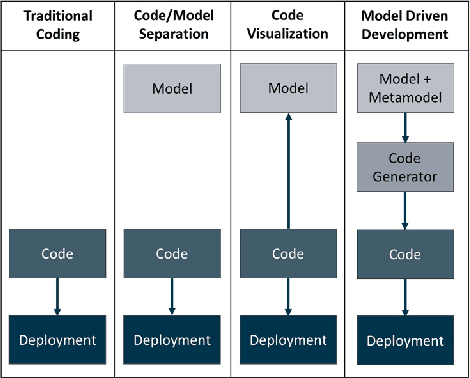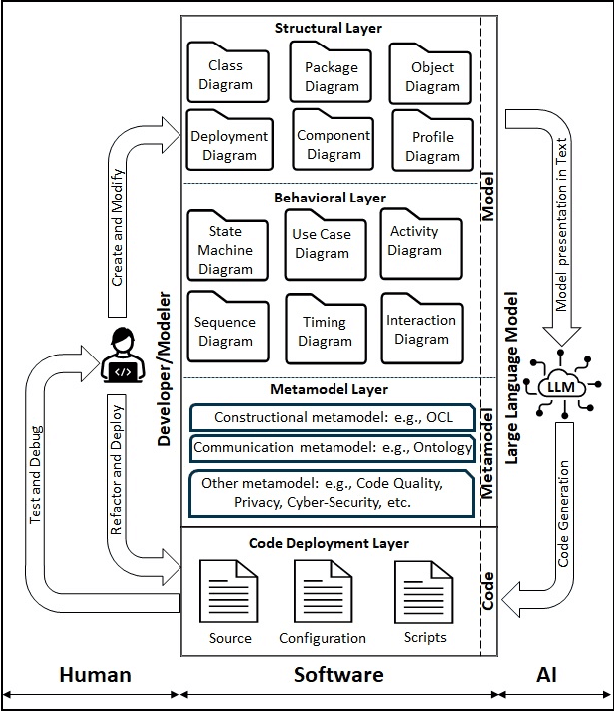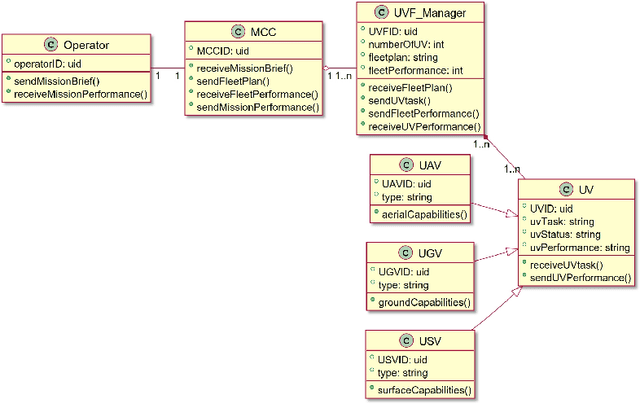Sebastian Brulin
Hybrid Many-Objective Optimization in Probabilistic Mission Design for Compliant and Effective UAV Routing
Dec 24, 2024Abstract:Advanced Aerial Mobility encompasses many outstanding applications that promise to revolutionize modern logistics and pave the way for various public services and industry uses. However, throughout its history, the development of such systems has been impeded by the complexity of legal restrictions and physical constraints. While airspaces are often tightly shaped by various legal requirements, Unmanned Aerial Vehicles (UAV) must simultaneously consider, among others, energy demands, signal quality, and noise pollution. In this work, we address this challenge by presenting a novel architecture that integrates methods of Probabilistic Mission Design (ProMis) and Many-Objective Optimization for UAV routing. Hereby, our framework is able to comply with legal requirements under uncertainty while producing effective paths that minimize various physical costs a UAV needs to consider when traversing human-inhabited spaces. To this end, we combine hybrid probabilistic first-order logic for spatial reasoning with mixed deterministic-stochastic route optimization, incorporating physical objectives such as energy consumption and radio interference with a logical, probabilistic model of legal requirements. We demonstrate the versatility and advantages of our system in a large-scale empirical evaluation over real-world, crowd-sourced data from a map extract from the city of Paris, France, showing how a network of effective and compliant paths can be formed.
LLM as a code generator in Agile Model Driven Development
Oct 24, 2024



Abstract:Leveraging Large Language Models (LLM) like GPT4 in the auto generation of code represents a significant advancement, yet it is not without its challenges. The ambiguity inherent in natural language descriptions of software poses substantial obstacles to generating deployable, structured artifacts. This research champions Model Driven Development (MDD) as a viable strategy to overcome these challenges, proposing an Agile Model Driven Development (AMDD) approach that employs GPT4 as a code generator. This approach enhances the flexibility and scalability of the code auto generation process and offers agility that allows seamless adaptation to changes in models or deployment environments. We illustrate this by modeling a multi agent Unmanned Vehicle Fleet (UVF) system using the Unified Modeling Language (UML), significantly reducing model ambiguity by integrating the Object Constraint Language (OCL) for code structure meta modeling, and the FIPA ontology language for communication semantics meta modeling. Applying GPT4 auto generation capabilities yields Java and Python code that is compatible with the JADE and PADE frameworks, respectively. Our thorough evaluation of the auto generated code verifies its alignment with expected behaviors and identifies enhancements in agent interactions. Structurally, we assessed the complexity of code derived from a model constrained solely by OCL meta models, against that influenced by both OCL and FIPA ontology meta models. The results indicate that the ontology constrained meta model produces inherently more complex code, yet its cyclomatic complexity remains within manageable levels, suggesting that additional meta model constraints can be incorporated without exceeding the high risk threshold for complexity.
Coding by Design: GPT-4 empowers Agile Model Driven Development
Oct 06, 2023Abstract:Generating code from a natural language using Large Language Models (LLMs) such as ChatGPT, seems groundbreaking. Yet, with more extensive use, it's evident that this approach has its own limitations. The inherent ambiguity of natural language presents challenges for complex software designs. Accordingly, our research offers an Agile Model-Driven Development (MDD) approach that enhances code auto-generation using OpenAI's GPT-4. Our work emphasizes "Agility" as a significant contribution to the current MDD method, particularly when the model undergoes changes or needs deployment in a different programming language. Thus, we present a case-study showcasing a multi-agent simulation system of an Unmanned Vehicle Fleet. In the first and second layer of our approach, we constructed a textual representation of the case-study using Unified Model Language (UML) diagrams. In the next layer, we introduced two sets of constraints that minimize model ambiguity. Object Constraints Language (OCL) is applied to fine-tune the code constructions details, while FIPA ontology is used to shape communication semantics and protocols. Ultimately, leveraging GPT-4, our last layer auto-generates code in both Java and Python. The Java code is deployed within the JADE framework, while the Python code is deployed in PADE framework. Concluding our research, we engaged in a comprehensive evaluation of the generated code. From a behavioural standpoint, the auto-generated code aligned perfectly with the expected UML sequence diagram. Structurally, we compared the complexity of code derived from UML diagrams constrained solely by OCL to that influenced by both OCL and FIPA-ontology. Results indicate that ontology-constrained model produce inherently more intricate code, but it remains manageable and low-risk for further testing and maintenance.
 Add to Chrome
Add to Chrome Add to Firefox
Add to Firefox Add to Edge
Add to Edge